Part 86: Victoria: Chapter 20 - The Red Menace: 1880 - 1885
1880 - 1885: Red Menace
With the unification of Germany, a program is launched to renovate and effectivize the federation industries after Swabian model, significantly boosting industrial output but driving Germany deeply into debt. A temporary tax is levied to begin paying it off.

With the loss of Swabian Italy, Germany's only remaining Mediterranean holding is Mallorca, and recruitment of a small garrison begins to keep this now vital port safe from Iberian invasion.

1880 is an uneasy year in the Byzantine Empire as riots break out all over South Greece. South Greece contains the majority of the Byzantine industries and is home to a growing middle class that feels more and more out of touch with the ruling classes. Byzantium's inability to deal with the Arab revolution has only served to further radicalize the workers, and a radical politican named Charilaos Trikoupis has formed the Worker's Union of Greece in Athens, the world's first major communist party.
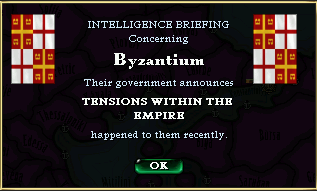
For Germany, it is a year of technological and cultural bounty. Torpedo Boats and Sea Mine Equipment is developed for the navy, while many modern nationalistic ideas begin to spread over the new state.
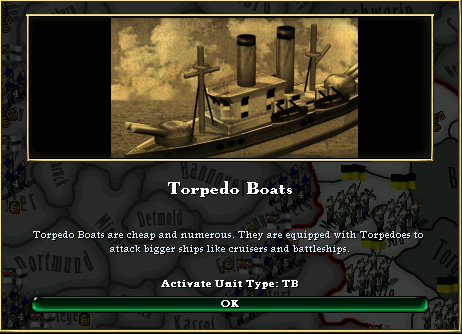

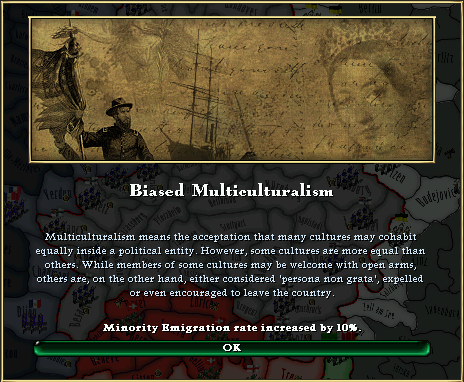
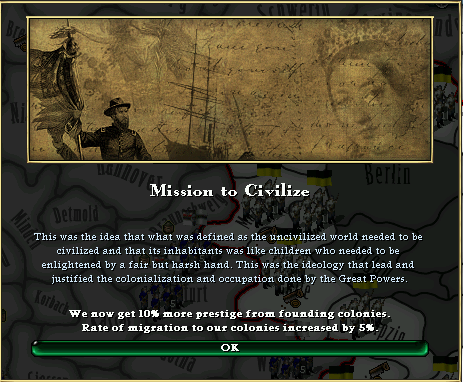
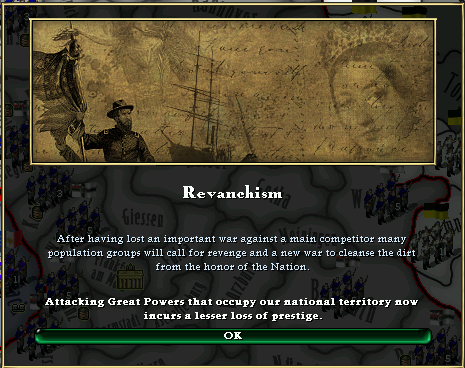
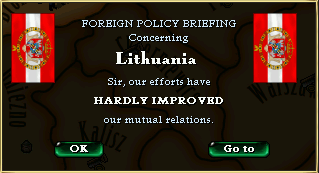
New industries also set up shop, in the form of fuel refineries and synthetic dye factories.

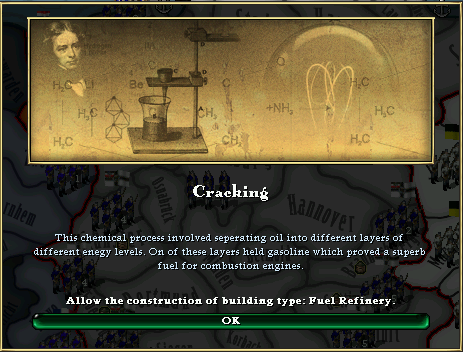
Chancellor Bismarck begins tying closer diplomatic ties Lithuania-Poland, which has modernized its military and recently, and would provide a useful ally against Austria.

Technology investment focuses almost solely on the creation of the new German war machine, both through army doctrines and industrial development.



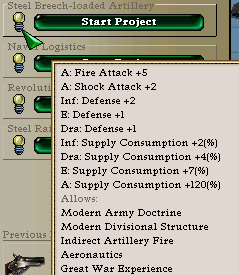
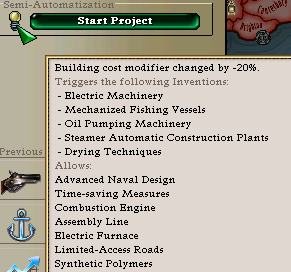
In July of 1881, Lombardy attacks Dauphine, asking for German support in their endeavour. Frederick II honors the alliance, sending a single army as expeditionary corps.
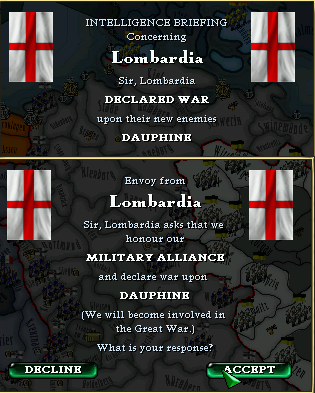
The Dauphinese fight a brave but hopefully defense, and soon the last remnants of Dauphine are absorbed into the Lombard Union.
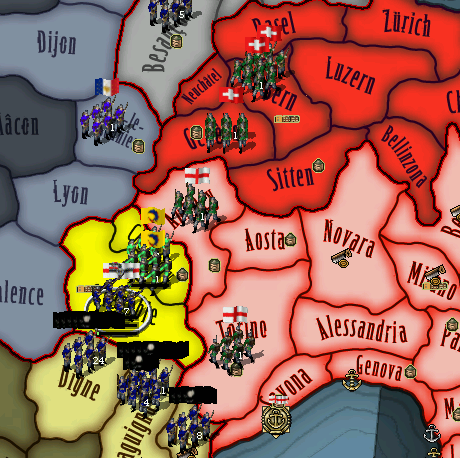
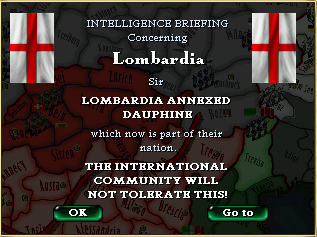
Colonial expastion in Africa and the East Indies continues, though by now Germany is running out of uncolonized areas to expand into.
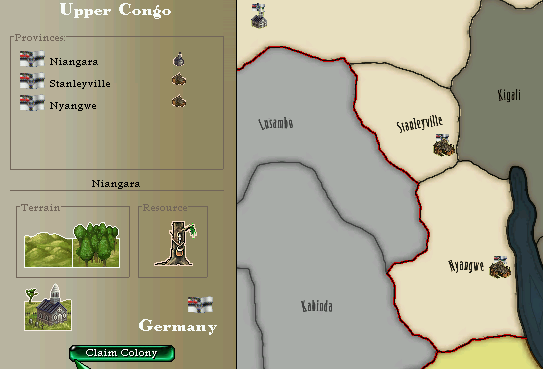
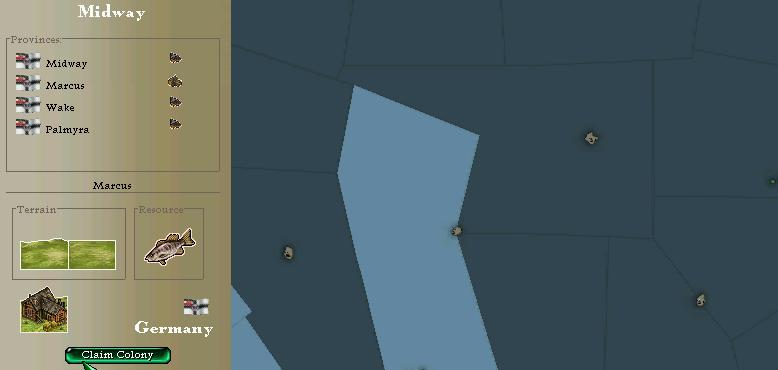
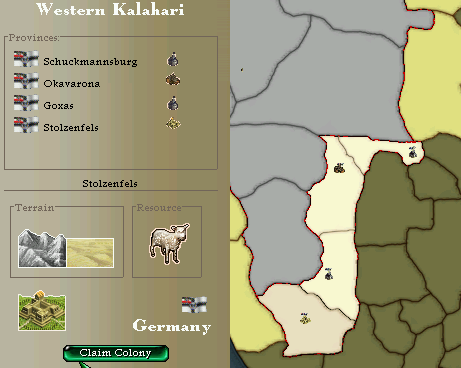
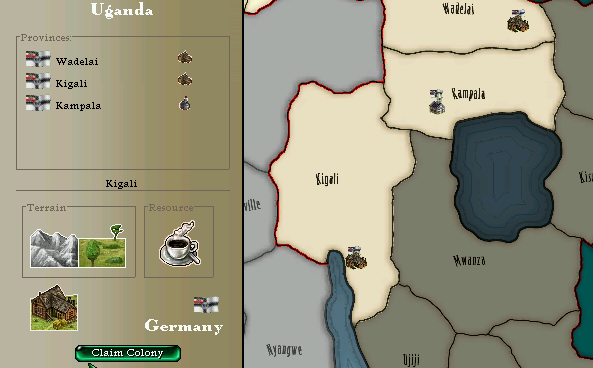
A new type of defense systems called 'trenches' are developed in June of 1882. Though some military thinkers speculate that these defenses would make an army almost impervious to attack from infantry, the thought is dismissed by serious military thinkers as lacking in understanding of the potency of heavy artillery.
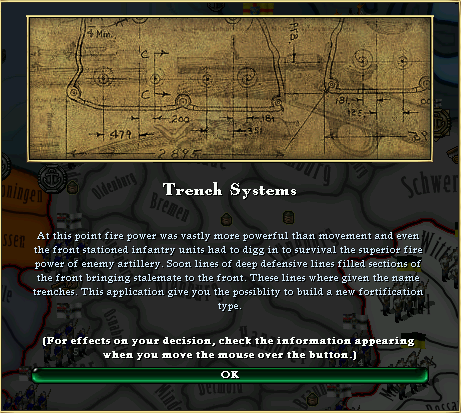
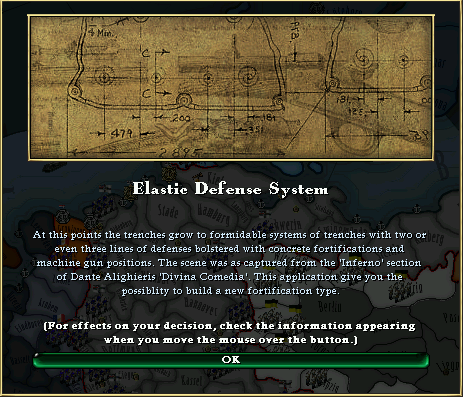
Expansion of the home army to 130 standing divisions also finishes in the same month, with additional plans for another 20 Pommeranian divisions in the works.
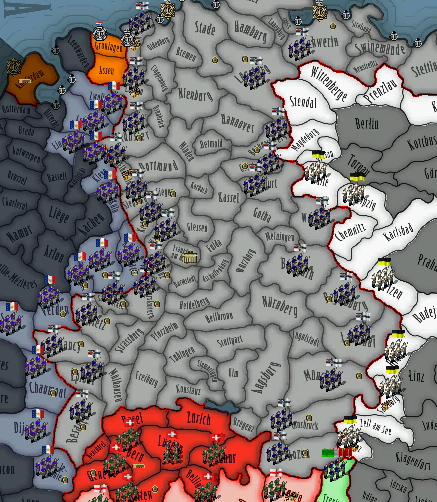
France attacks the Netherlands in July, meeting no opposition from the UK, which is not about to enter another multi-year war for the same of a few doomed Dutch cities. The war is over in less than a month with the unconditional surrender of the Netherlands.
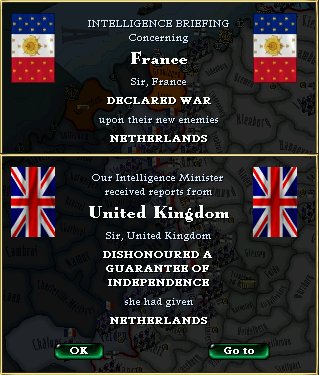
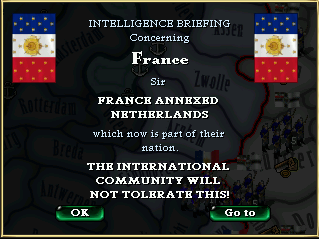
In August, the UK attacks Yuan China. Russia, which views China as its own interest sphere, interferes, going to war with the british. After months of fighting in Siberia and Manchuria, the UK sues for peace, giving up nearly all its colonial holdings north of Korea.
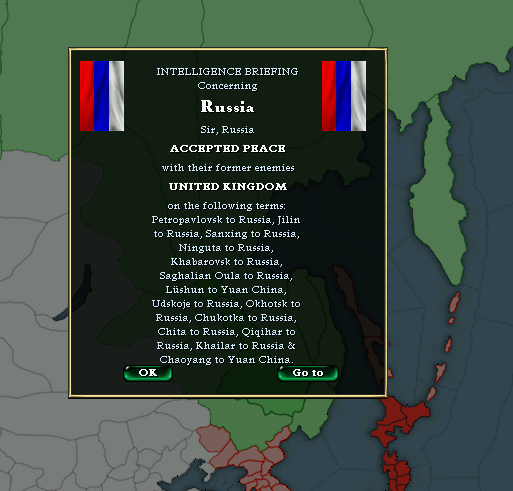
Meanwhile, Byzantium continues its steady expansion through India, conquering the remaining indian minors one by one.
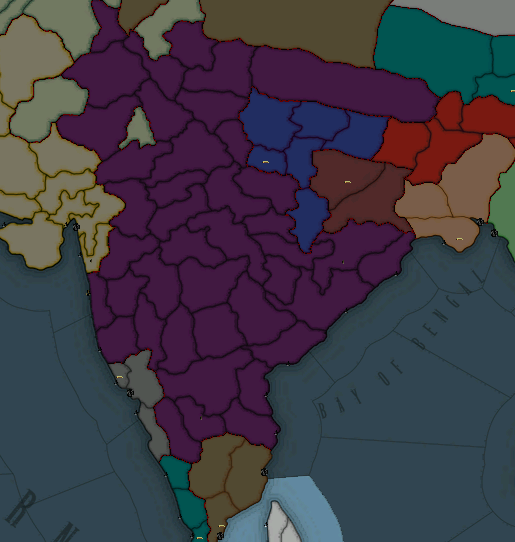
The tide of war continues, as Morocco invades and annexes Barasya in March of 1884,
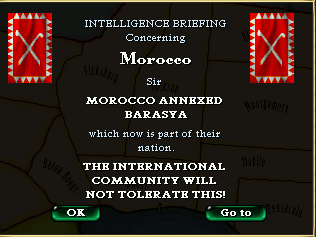
The annexation of Barasya triggers a reaction from the CCA. The Americans, vowing to kick the last colonial power in America off the continent, declares war on Morocco and takes most of their colonial territory in the peace.
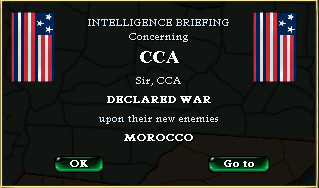
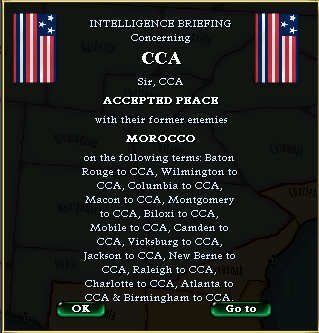
The spiral of dissent and riots in Byzantium continues in June, as the communists arrange a number of armed risings all over Southern Greece. The risings are brutally quelled, but the Byzantine government's continued focus on colonialism and external affairs have only served to allow the communist movement to spread to most major cities in the empire.
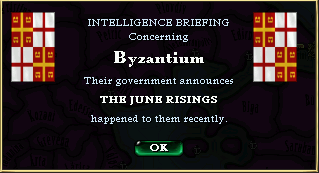
Germany engages in a little colonialism of its own, invading the unstable Kingdom of Ayutthaya and adding it to its Asian colonies in October.
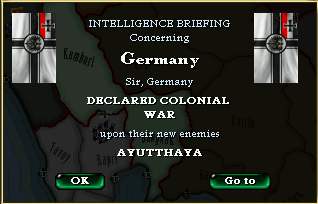
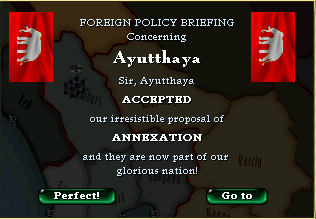
In Byzantium, the risings reach their climax in January of 1885, as all of Southern Greece rises under the banner of the Union of Rome, vowing to create a Roman Worker's Republic in Constantinople.
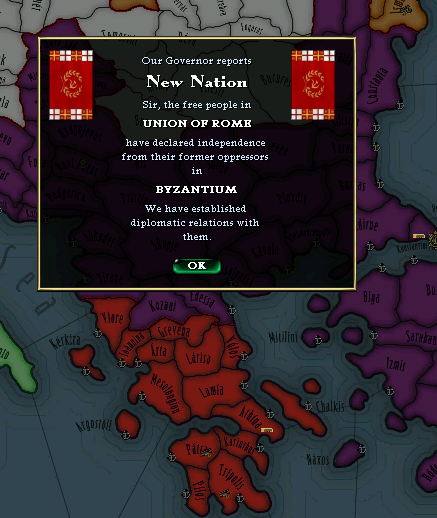
East Rome, Byzantium, the Empire that has survived for nearly two milennia, is now in a state of civil war. The loyalties of its soldiers, tired of endless wars overseas and poverty at home, are uncertain. Its industries are in the hands of the revolters. Will the support of its allies be enough to save the Empire, or will the Union of Rome triumph?